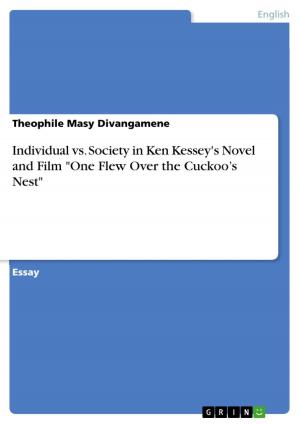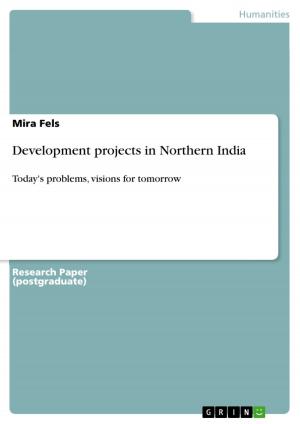India in Africa
Exploitation, Mutual Trade or Aid Donor?
Nonfiction, Social & Cultural Studies, Political Science, International, International Relations| Author: | Matthias Becher | ISBN: | 9783638058254 |
| Publisher: | GRIN Publishing | Publication: | June 4, 2008 |
| Imprint: | GRIN Publishing | Language: | English |
| Author: | Matthias Becher |
| ISBN: | 9783638058254 |
| Publisher: | GRIN Publishing |
| Publication: | June 4, 2008 |
| Imprint: | GRIN Publishing |
| Language: | English |
Essay from the year 2007 in the subject Politics - International Politics - Region: Africa, grade: 2,3, Sciences Politiques Lille (Institut d`Etudes de Lille), 11 entries in the bibliography, language: English, abstract: Introduction When talking about globalization and new world power, one today has to mention China and India as the two countries where economy is growing at its maximum. China, the leader of the two countries has increasing relations to Africa since the mid 90s, whereas Indian interests in Africa are noticeable since the last six years (Heinrich Böll Stiftung, 2006: 2). With a growing economy, a bigger demand for natural resources comes along, which both countries try to find in Africa, which is at fifth position of world's oil stocks. According to that fact Africa is getting more and more attention from the New Global Players, and one can find a lot of research about this fact. In this paper I want to have a closer look on the Indian - African relations of the last years and its roots. What does this mean for Africa, what for India? What are the perceptions of both? Are Indian interests only noticeable in economic sectors, can we constitute an exploitation which means flows only in one direction? Or is it a mutual trade for both, whereas Africa with its many countries and India can take advantage out of it? A last idea could be also, that India only wants to deepen its relations with some African countries like Mauritius, South-Africa, Sudan and East-Africa where connections already exists since the Non-Alignment Movement with its beginning in 1955 (Biallas/Knauer, 2006: 2).
Essay from the year 2007 in the subject Politics - International Politics - Region: Africa, grade: 2,3, Sciences Politiques Lille (Institut d`Etudes de Lille), 11 entries in the bibliography, language: English, abstract: Introduction When talking about globalization and new world power, one today has to mention China and India as the two countries where economy is growing at its maximum. China, the leader of the two countries has increasing relations to Africa since the mid 90s, whereas Indian interests in Africa are noticeable since the last six years (Heinrich Böll Stiftung, 2006: 2). With a growing economy, a bigger demand for natural resources comes along, which both countries try to find in Africa, which is at fifth position of world's oil stocks. According to that fact Africa is getting more and more attention from the New Global Players, and one can find a lot of research about this fact. In this paper I want to have a closer look on the Indian - African relations of the last years and its roots. What does this mean for Africa, what for India? What are the perceptions of both? Are Indian interests only noticeable in economic sectors, can we constitute an exploitation which means flows only in one direction? Or is it a mutual trade for both, whereas Africa with its many countries and India can take advantage out of it? A last idea could be also, that India only wants to deepen its relations with some African countries like Mauritius, South-Africa, Sudan and East-Africa where connections already exists since the Non-Alignment Movement with its beginning in 1955 (Biallas/Knauer, 2006: 2).















